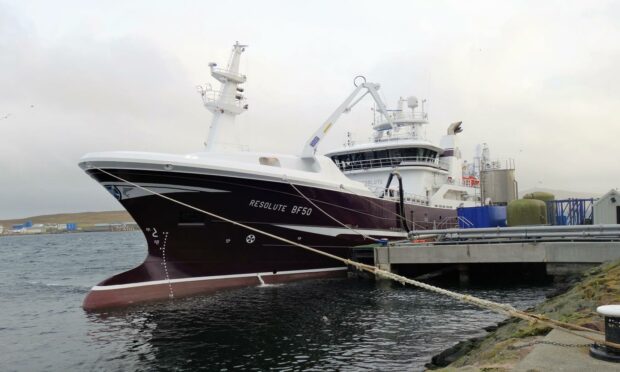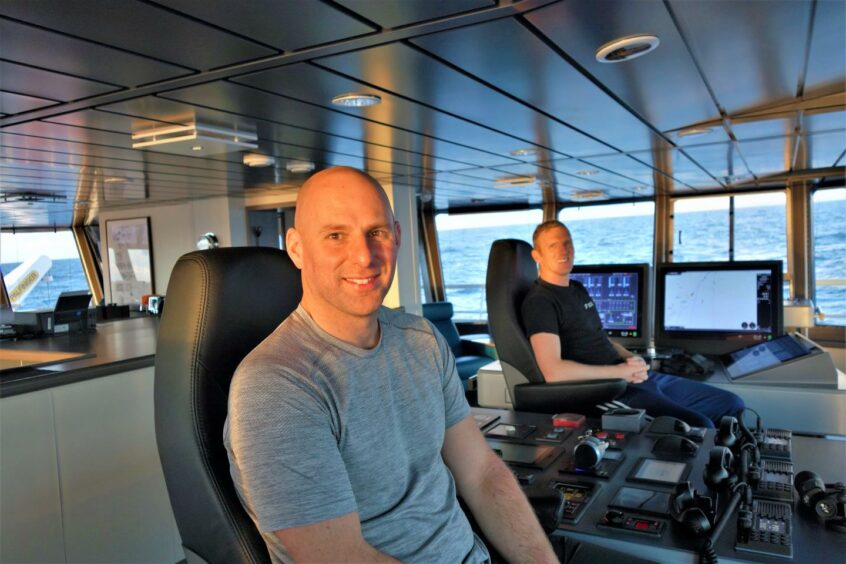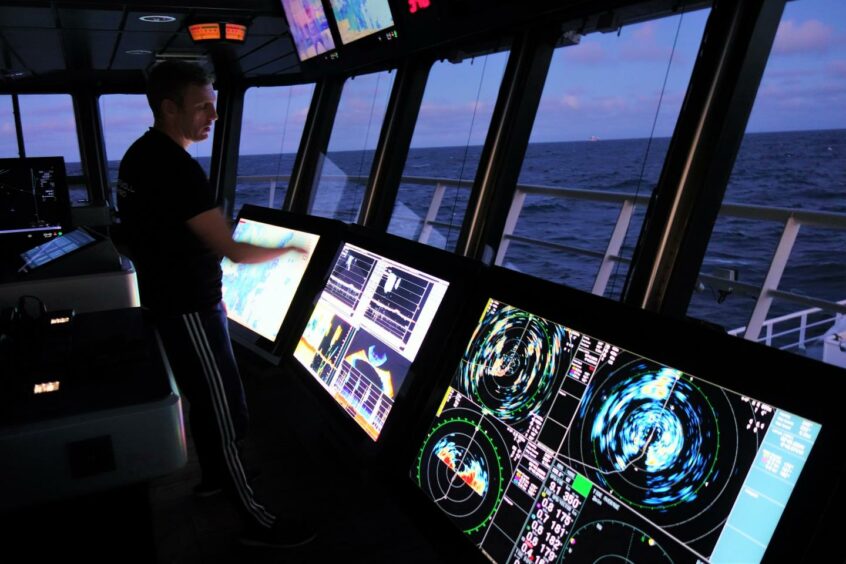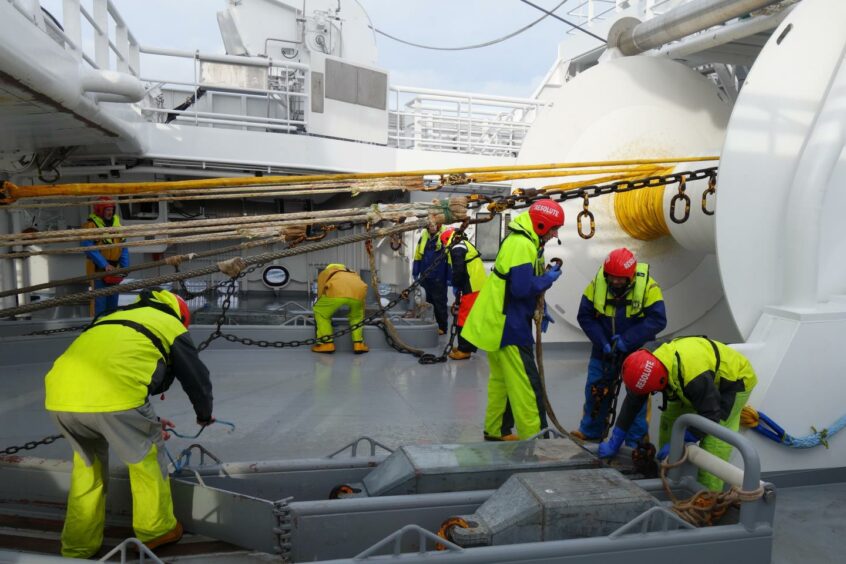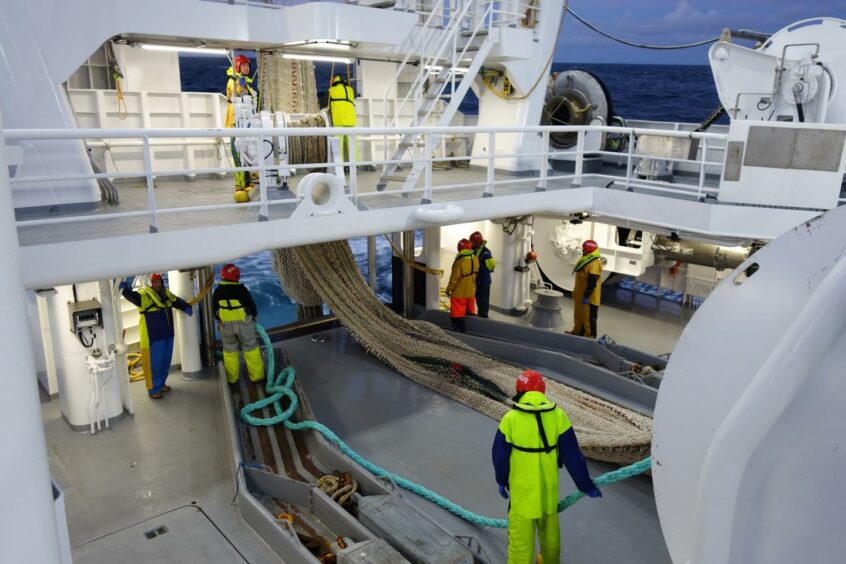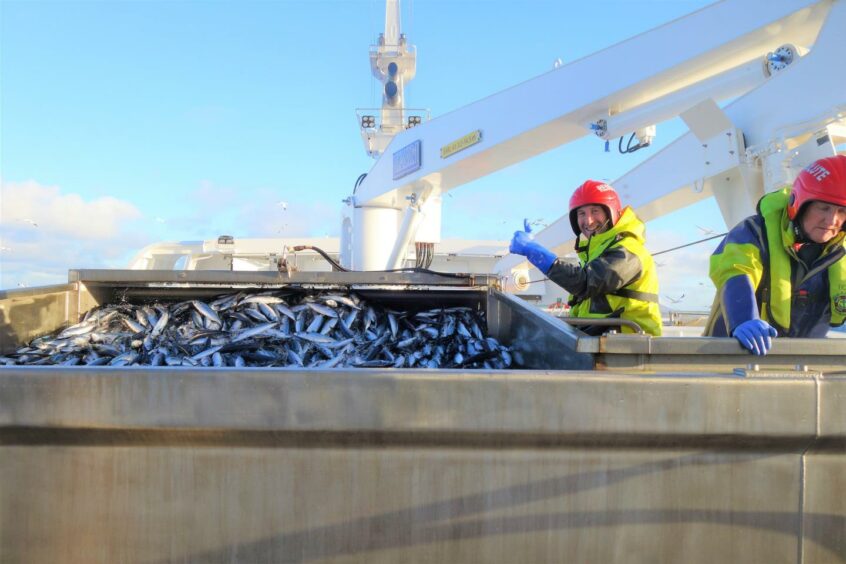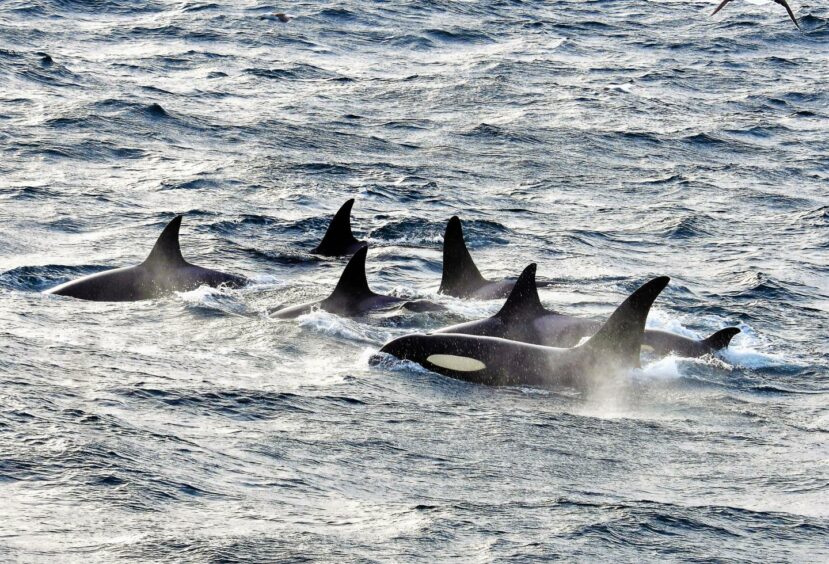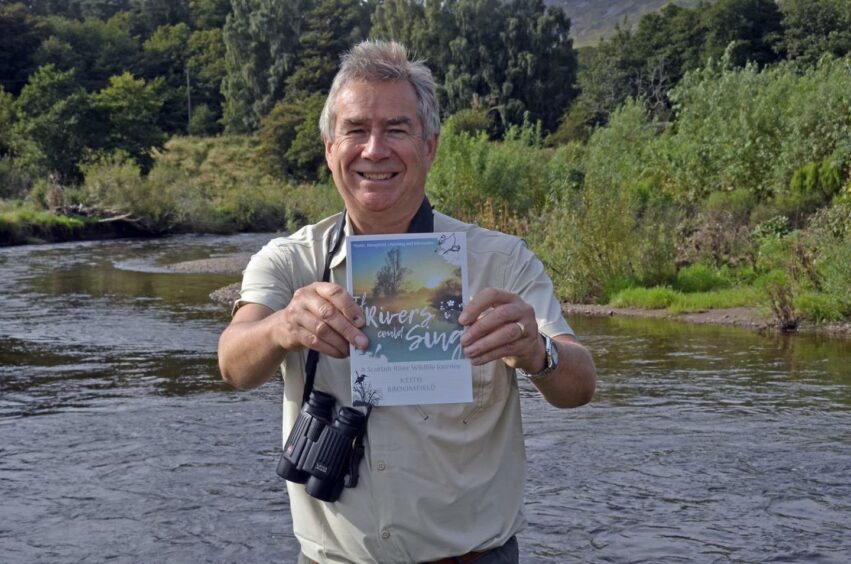It was just prior to daybreak and the tension in the wheelhouse of the Fraserburgh-based Resolute was palpable.
The trawler was 18 miles south-east of Sumburgh Head, Shetland, and for the last few hours, co-skippers Matty West and Ally West had been tracking shoals of mackerel with their electronic fish-finding equipment.
Illuminated by the gentle glow from the large fish-scanning and navigational screens arranged at the front of wheelhouse, the faces of Matty and Ally were a picture of rapt concentration.
Pointing his finger at one of the fish-finder visuals, Matty said: “There is a good shoal there, but let’s steam on a bit more and see what else we can find.”
He explained the digital patterns on the screen which signify fish. To a layperson, they appear like vast orange smudges, but to Matty’s experienced eye, he can quickly tell the size of the shoal and the direction they are heading.
What is immediately apparent from the digital shoal signatures is that there is an abundance of mackerel in the seas off Shetland – an encouraging sign the stock is in good health.
The screens also highlighted the position of a couple of other fishing vessels a few miles away, who were involved in a similar search.
Matty and Ally, who are cousins, alternate between who is lead skipper for each trip, and this time around Matty, 41, was in charge.
“When possible, we prefer to shoot the trawl when it is daylight, as the mackerel tend to shoal closer together during the day, and it is also safer for the crew,” he said.
As the flickering light of dawn gradually took hold over a grey-ruffled sea, the 10 other crew members scrambled down to the lower stern deck to prepare the trawl for shooting.
It is a complicated task; shackles were attached here and there, ropes prepared, and the tail-end of the net was hauled up from the winch by a specially designed crane, before being hung over the stern.
It was a study in teamwork, the crew going about their tasks quickly, efficiently and methodically, each one knowing what their colleagues were doing, and working together as if guided by telepathy.
Matty steered the 69m vessel carefully towards the shoal, which was swimming in midwater at a depth of around 100m. He cut the speed to 1.5 knots and gave the order to shoot the trawl, the air suddenly filled with a clamouring, metallic clanking noise as the winch rapidly unwound, the trawl trailing away behind the vessel into a gently heaving sea.
The Resolute slowly towed for about 45 minutes – time for the crew to snatch a quick breakfast – before they were back out on deck again as the winch began to slowly retrieve the net.
Once the net bag at the end of the trawl was safely secured by the stern of the vessel, the mackerel were pumped onboard into refrigerated seawater tanks.
This turned out to be a good haul of mackerel, each fish averaging about 435gms, and once the net had been emptied, the trawl was released back into the sea for one more tow after another mark of fish was detected.
Slightly fewer fish were caught this time around, and they were marginally smaller compared to the first haul, but Matty and Ally were still well pleased with the morning’s work.
The Resolute swung round and headed back towards Lerwick to land her catch at the local mackerel processing factory.
As is the case with other mackerel and herring vessels in the Scottish fleet, the make-up of the crew is largely a family affair, with many related to one another, and coming from fishing families that can be traced back several generations.
Ally West, 37, said: “Fishing really is in our blood and there is no job in the world quite like it. The satisfaction of completing a successful trip gives you an unbelievable buzz that is difficult to describe.”
Matty agreed. “Every trip is different and brings its own different challenges, but I enjoy the job immensely, especially the camaraderie involved when working with such a great crew.”
Sustainability is something close to both skippers’ hearts, and during the trip it was clear to see their continual interest and fascination in the marine life glimpsed from the boat, including a pod of orcas, feasting upon any mackerel that spilled from the trawl.
“We all recognise the importance of sustainable harvesting and the need for the fishery to be well-managed,” said Matty. “The Resolute is a new boat and we have invested heavily in it, so it is in our interests to ensure our mackerel and other fish stocks stay healthy, ensuring that our fishing tradition can be passed down to future generations.”
On a personal level, I was left hugely impressed by this team of close-knit fishermen, risking their lives on a regular basis to put food on our plates. They were like a band of brothers, working in harmony together and looking out for one another in the cold and often stormy waters of the north-east Atlantic in their quest for the sparkling shoals of fish.
Press and Journal nature writer shortlisted for award
A book by P&J nature writer Keith Broomfield has been shortlisted for a prestigious award in the Scotland’s National Book Awards 2021.
If Rivers Could Sing, which chronicles a wildlife year on the River Devon, has been selected as a finalist in the First Book category.
The book is a personal Scottish river journey, where Keith delves deeper into his own local river to explore its abundant wildlife which includes beavers, otters, kingfishers and salmon.
Keith says: “I am thrilled the book has been shortlisted for such a prestigious award, which I hope will provide encouragement to other first-time book writers to pick-up a pen and get writing.”
The winners of the awards will be announced on Saturday November 27.
